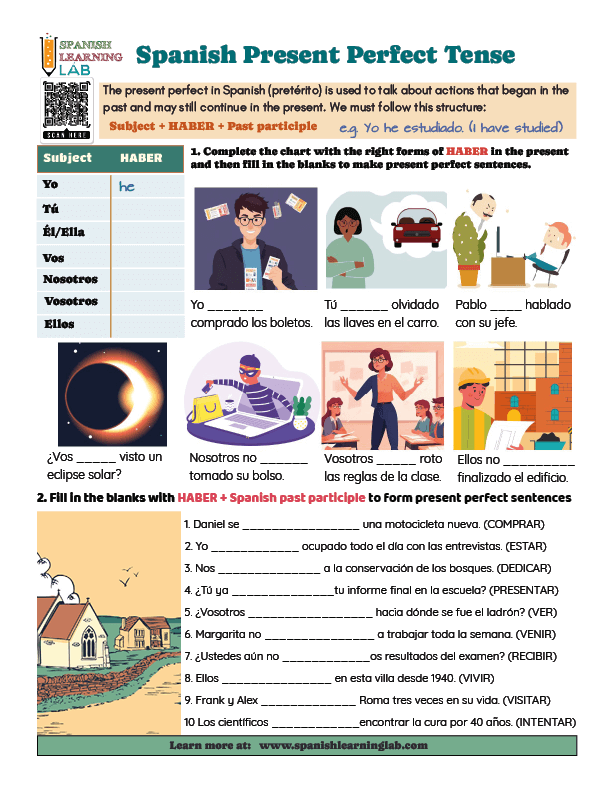
¡Hola! Thanks for joining us. We designed this cool worksheet to help you practice the grammar rules for the Spanish present perfect tense, that is, “el pretérito perfecto compuesto”, through three easy and intuitive exercises on this topic. Let’s start…
Students could work individually or in pairs to solve the exercises on this worksheet.
On top of the worksheet, we explain that “el pretérito perfecto” is used to talk about actions, intervals or events that began in the past and may have continuity in the present. This tense is ideal to talk about life experiences, like “Yo he viajado a 10 países.” (I have traveled to 10 countries.) and to talk about the results of a process or action in Spanish, for example: “Tú has roto el espejo.” (You’ve broken the mirror).
In order to solve the first exercise, students should write the conjugations of the verb HABER in the present tense next to each subject pronoun. Know that HABER will work just the way “TO HAVE” does in the English language for this tense, with the “slight” difference that it has several forms in Spanish. Next, students should fill in the blanks with these forms of HABER to make fully comprehensible sentences in the Spanish present perfect tense. The past participle is given in exercise 1, so there is no need to add it. As for the second exercise, students must fill in the blanks with both HABER and the correct past participle of the verbs in parentheses. As usual, if students have doubts, they can always double-check the right form of verbs with a conjugation tool.
Level: Beginners
Skill: Grammar
Related lessons:

Follow the instructions to solve these exercises about the Spanish present perfect tense.